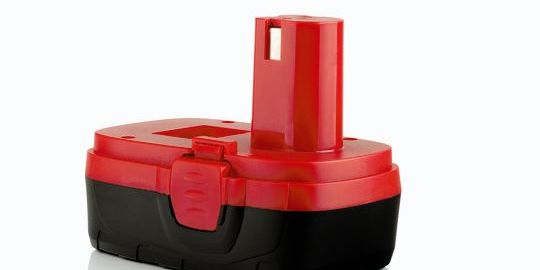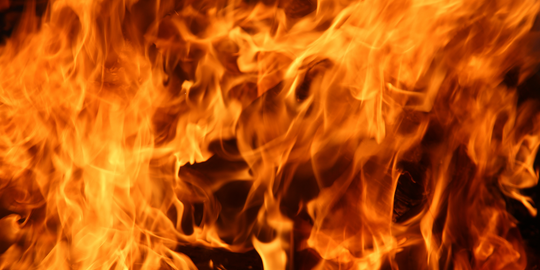- Electrical items thrown away in household bins now linked to 700 fires
- BMRA says local authorities must introduce kerbside collections to ensure public safety
- Two million items discarded between Black Friday & Christmas
NEW rules are “urgently required” to prevent households throwing unwanted electrical equipment out with the general waste over Christmas, a leading recycling association has said.
The call comes as experts say waste electrical and electronic equipment (WEEE) can now be linked to three times more fires inside bin lorries and at household waste recycling centres than initially thought.
WEEE generally covers products that have a plug or need a battery, such as fridges, vacuum cleaners, cookers, mobile phones and computer equipment.
Discarded items may contain batteries which can cause fires if they are damaged, and they need to be treated differently to general household waste.
And with councils set to collect two million unwanted WEEE items, the British Metal Recycling Association (BMRA) say local authorities should carry out kerbside collections.
James Kelly, the CEO of the BMRA, said: “Councils need to introduce kerbside collections for discarded WEEE items. That is because we are seeing increased fires happening in bin lorries and at household waste recycling centres as well as metal recycling sites like those of our members where these items can end up in the incorrect waste stream. People’s lives are at risk.”
The BMRA says the fires are often caused by damaged lithium and lithium-ion batteries inside the discarded electrical items. There have long been fears that they cause fires, but research by the Recycle Your Electricals campaign led by Material Focus say they can now be linked to 700 fires in the past 12 months.
And Mr. Kelly, whose trade association represents the £7 billion UK metal recycling sector, said the problem is particularly bad at this time of year.
“Almost two fires a day across the country can now be linked to these batteries, according to new research,” Mr. Kelly said. “In the space of 10 weeks, thanks to Black Friday deals, Christmas gifts, Boxing Day sales and January sales, we are likely to see millions of electrical items discarded.
“If there is not an easy option, such as kerbside collection, it is likely that much of this will be disposed of incorrectly. This massively increases the risk of fires across the waste sector. That is why we need to see kerbside collections introduced right away.”
According to the results of the recent survey by Material Focus, fires caused by batteries are potentially a far bigger issue than previously reported in waste sector reports. The survey shows that nearly 90% of the 60 local authorities surveyed said fires caused by batteries are “an increasing problem”.
Earlier this month London Mayor, Sadiq Khan, said he had "serious safety concerns" about some lithium-ion batteries used in privately owned e-scooters and in online conversion kits.
His warning came after the London Fire Brigade reported there had been 130 fires this year involving the batteries, 65 used by e-bikes, 24 used by e-scooters and the remainder involving those used in e-cigarettes. Some are known to overheat when being charged.
The scale of unwanted electrical waste in the UK is vast.
Last year UK households bought nearly 40 million electrical items in the period between Black Friday and Christmas.
This resulted in 4.2 million unwanted electrical items being “abandoned”, with the hoarding of 2.2 million items and the other two million thrown away.
Research has found that 33 per cent of households have at least one electrical device in their home that does not work that could be recycled. That includes almost 21 million desktop computers, 18.5 million games consoles; 11.7 million laptops and 9.17 million tablets and printers which are working but no longer used by the household.
Research by Currys claims that more than £850 million worth of precious metals could be salvaged from these electrical products each year - including enough gold to make more than 850,000 rings.
Mr. Kelly added: “Aside from the safety issues regarding fires, hoarding e-waste also prevents a great many raw materials being made available again from recycling. These include metals such as copper, cobalt, and tungsten.”
According to a report released by the House of Commons Environmental Audit Select Committee, the U.K. generates 23.9 kilograms of e-waste per person each year, second only to Norway. This far exceeds the world average of 7.3 kilograms per capita and the European average.
Notes for editors:
For further information, contact [email protected] or [email protected]
ABOUT THE BMRA:
The British Metals Recycling Association (BMRA) represents the £7 billion metals recycling sector, which comprises an estimated 2,000 businesses and employs over 15,000 people. The industry trades and processes over 10 million tonnes of ferrous and non-ferrous metals every year, including: steel, aluminium and copper. On average, we export eight million tonnes every year: or 80% of all scrap arisings in the UK.
Scrap metals are secondary raw materials whose use reduces the demand for precious natural resources needed to make new metal compounds – such as iron ore in steelmaking; nickel in stainless steel; or alumina and bauxite in aluminium smelting.
For example, every tonne of recycled steel saves:
• 1.5 tonnes of iron ore
• 0.5 tonnes of coal
• 70% of the energy
• 40% of the water
• 75% of CO2 emissions
The figures for aluminium and copper are even more impressive. The recycling of copper requires up to 85% less energy than primary production. Around the world, this saves 40 million tonnes of CO2. Recycling aluminium uses 95% less energy than producing aluminium from raw materials and saves 97% of greenhouse gas emissions produced in the primary production process.


